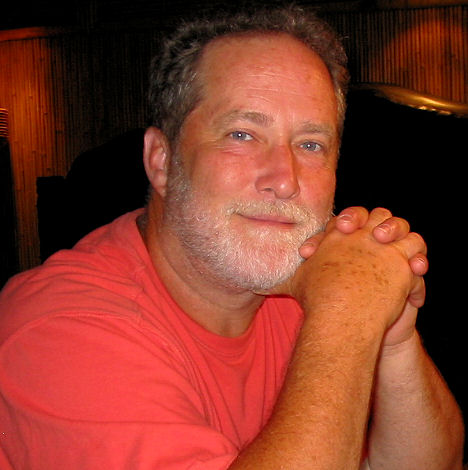November 19 marks the 155th anniversary of Abraham Lincoln’s Gettysburg Address (quoted in full below). Ten immortal sentences...spoken in less than three minutes.
Some interesting editorials from then-contemporary newspapers (with some of the most glaringly wrong observations underlined by this editor):
“The President succeeded on this occasion because he acted without sense and without constraint in a panorama that was gotten up more for the benefit of his party than for the glory of the nation and the honor of the dead...we pass over the silly remarks of the President, for the credit of the nation we are willing that the veil of oblivion shall be dropped over them and that they shall no more be repeated or thought of.” Harrisburg Patriot and Union (The paper apologized 150 years later for their forebears...)
“Mr Lincoln did most foully traduce the motives of the men who were slain at Gettysburg [in his reference to a “new birth of freedom”]...they gave their lives to maintain the old government...the cheek of every American must tingle with shame as he reads the silly, flat, and dish-watery utterances of the man who has to be pointed out to intelligent foreigners as the President of the United States.” Chicago Times
“The dedicatory remarks of President Lincoln will live among the annals of man.” Chicago Tribune
“The ceremony was rendered ludicrous by some of the sallies of that poor President Lincoln.” London Times
“...That this was the right thing in the right place, and a perfect thing in every respect, was the universal encomium.” Cincinnati Gazette
“....The few words of the President were from the heart to the heart. They cannot be read even, without kindling emotion. ‘The world will little note nor long remember what we say here, but it can never forget what they did here.’ It was a simple and felicitous and earnest a word as was ever spoken.” Harper’s Weekly
“....The rhetorical honors of the occasion were won by President Lincoln. His little speech is a perfect gem; deep in feeling, compact in thought and expression, and tasteful and elegant in every word...this shows he can talk handsomely as well as act sensibly. Turn back and read it over, it will repay study as a model speech.”
“We know not where to look for a more admirable speech than the brief one which Mr. Lincoln made at the close of Mr. Everett’s oration.” Providence Journal
“...Thousands who would not read the elaborate oration of Mr.Everett would read the President’s few words and not many will do it without a moistening of the eye and a swelling of the heart.” Philadelphia Evening Bulletin
“I should be glad if I could flatter myself that I came as near to the central idea of the occasion in two hours as you did in two minutes.” Edward Everett - Letter to President Lincoln
Lincoln’s reply to Mr.Everett: “In our respective parts yesterday, you could not have been excused to make a short address, nor I a long one. I am pleased to know that, in yourjudgement, the little I did say was not entirely a failure.”
The Gettysburg Address
“Four score and seven years ago our fathers brought forth on this continent, a new nation, conceived in Liberty, and dedicated to the proposition that all men are created equal.
“Now we are engaged in a great civil war, testing whether that nation, or any nation so conceived and so dedicated, can long endure. We are met on a great battlefield of that war. We have come to dedicate a portion of that field, as a final resting place for those who here gave their lives that that nation might live. It is altogether fitting and proper that we should do this.
“But, in a larger sense, we cannot dedicate – we cannot consecrate – we cannot hallow – this ground. The brave men, living and dead, who struggled here, have consecrated it, far above our poor power to add or detract. The world will little note, nor long remember what we say here, but it can never forget what they did here. It is for us the living, rather, to be dedicated here to the unfinished work which they who fought here have thus far so nobly advanced. It is rather for us to be here dedicated to the great task remaining before us – that from these honored dead we take increased devotion to that cause for which they gave the last full measure of devotion – that we here highly resolve that these dead shall not have died in vain – that this nation, under God, shall have a new birth of freedom – and that government of the people, by the people, for the people, shall not perish from the earth.”
(Special thanks to Manuel Sarmina, former Chief Master Sergeant in the United States Air Force, a life-long admiring student of Lincoln, and friend of the Editor, Paul Hayden, for the research provided for this article.)
 Paul Hayden is a Christian believer, and an American patriot, necessarily in that order. He is a student of the Bible, and is avidly interested in our role in the context of history, as understood through the heart and eyes of faith. Paul has lived and traveled somewhat widely, and now lives in the heartland of the U.S. (central Illinois), with his wife Donna - they have five grown children. Since December of 2016, he serves as the Editor-in-Chief of www.ConservativeTruth.org.
Paul Hayden is a Christian believer, and an American patriot, necessarily in that order. He is a student of the Bible, and is avidly interested in our role in the context of history, as understood through the heart and eyes of faith. Paul has lived and traveled somewhat widely, and now lives in the heartland of the U.S. (central Illinois), with his wife Donna - they have five grown children. Since December of 2016, he serves as the Editor-in-Chief of www.ConservativeTruth.org.